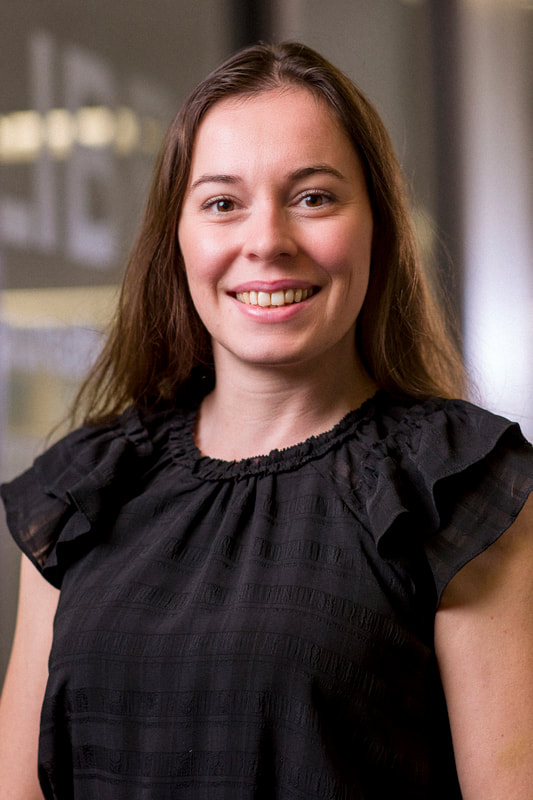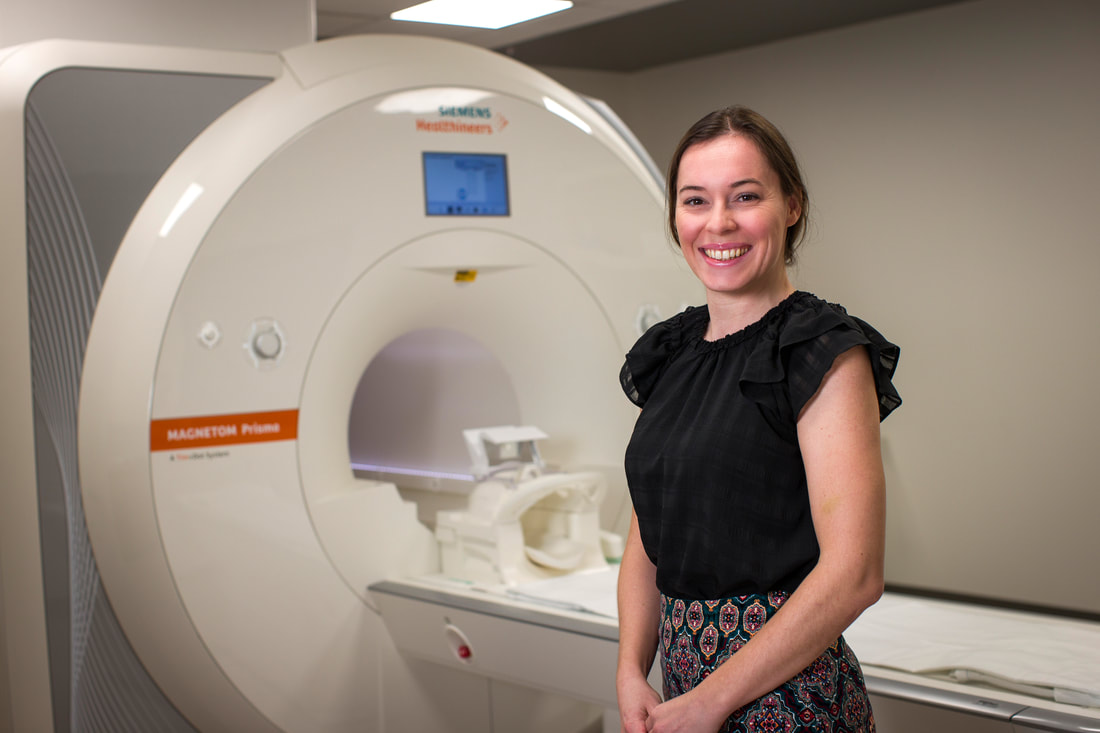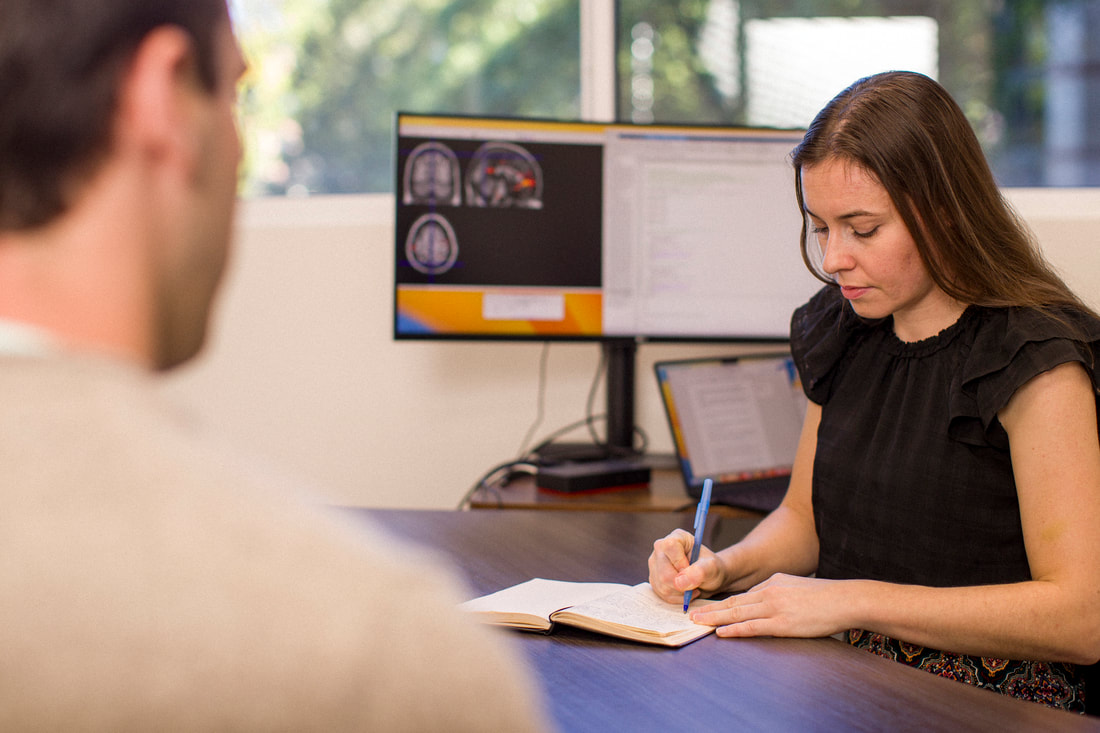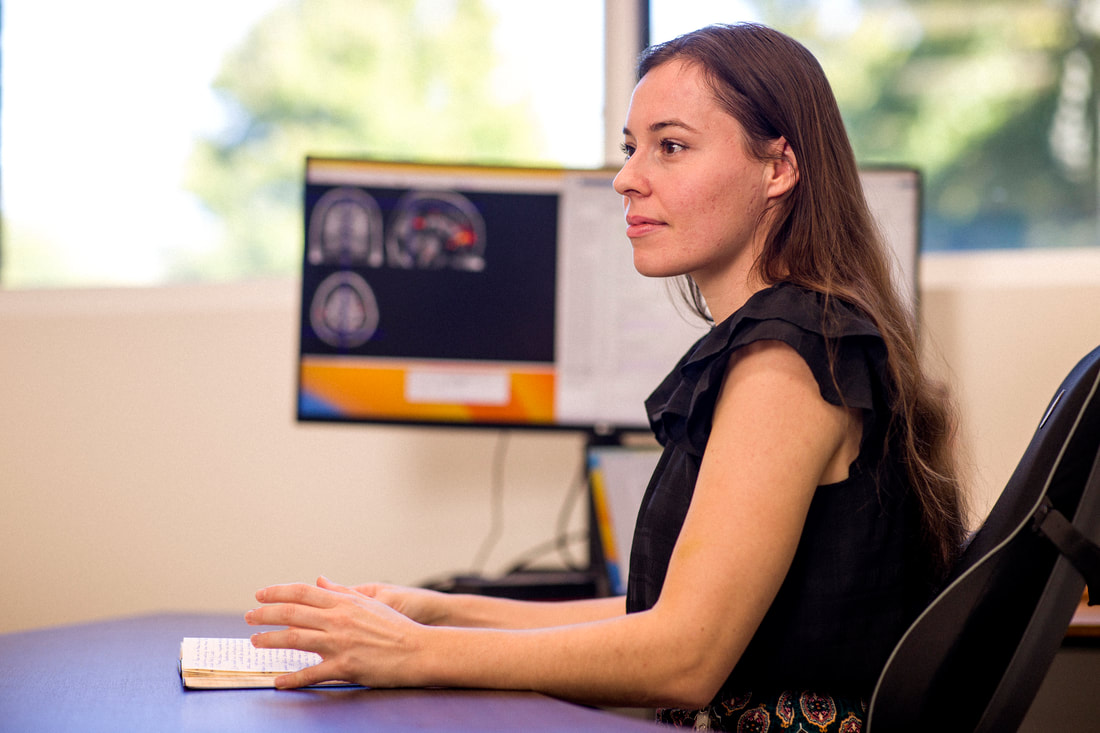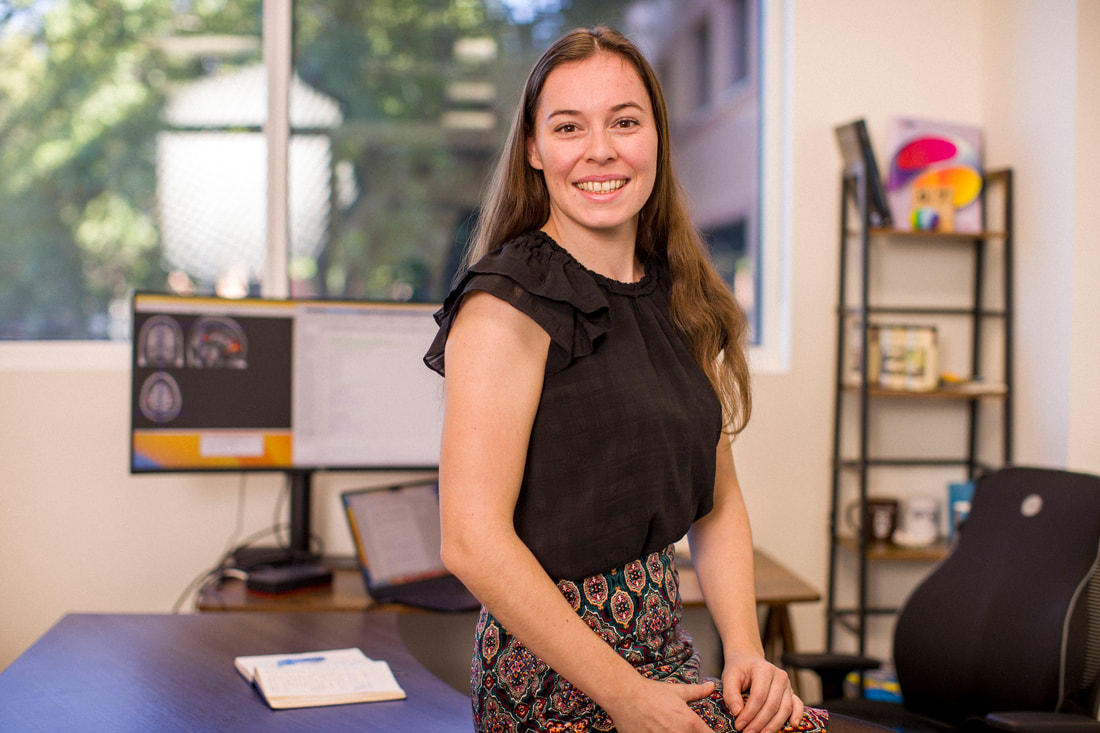The Gueguen Laboratory
Our Research ApproachDr. Gueguen's laboratory employs behavioral, neuroimaging and computational modeling techniques to investigate the neurocomputational mechanisms underlying maladaptive appetitive and aversive outcome processing in Substance Use Disorders, how they are linked to mood and affective states and how they can lead to drug reuse. A major overarching goal is to identify actionable behavioral intervention targets to promote long-term abstinence.
|
Research Program Highlights
|
Main Questions
How do people with Substance Use Disorders respond to aversive events? How can a negative internal state of anxiety or withdrawal affect their sensitivity to aversive events associated with drug use? Are they always able to learn how to adapt their behavior to avoid experiencing negative consequences associated with drug use?
|
Approach
We apply computational modeling to behavioral and neuroimaging experiments probing cognitive processes involved valuation, appetitive and aversive outcome processing and reinforcement learning in populations with Substance Use Disorders.
|
Future Directions
The lab's next project aims to tease apart maladaptations in the sensitivity to aversive events from altered abilities to learn from these events, in people with Substance Use Disorders. This will further our understanding of why many individuals continue to use drugs despite being aware of the negative consequences associated with sustained drug use. This knowledge could be leveraged to improve the effectiveness of behavioral interventions promoting abstinence.
|
Scientific Background
Dr. Gueguen grew up in the French Alps. She received her B.Sc in Biology and M.Res in Neurobiology and Neuroscience from the University Grenoble Alpes (UGA), then pursued her graduate studies in Cognitive Neuroscience at the Grenoble Institute for Neuroscience under the joint supervision of Dr. Julien Bastin (UGA) and Dr. Jean-Philippe Lachaux (Lyon Neuroscience Research Center). Her graduate work focused on identifying the cortical correlates of reinforcement learning. Using intracortical electrophysiological recordings in humans and computational modeling, her work identified the neural signatures responsible for reward-seeking and punishment-avoidance, and proved the co-existence of distinct cortical circuits encoding prediction errors and their components.
In 2020, Dr. Gueguen joined Rutgers University (New Jersey, USA) to complete a 3.5-year postdoctoral fellowship with Dr. Anna B Konova in Addiction and Decision Neuroscience. During her fellowship, she designed and ran behavioral and neuroimaging studies focused on understanding maladaptive value-based decision-making in populations with Substance Use Disorders. She leveraged the use of computational modeling to identify time-sensitive effects of drug use on reward valuation and representation, attitudes towards risk and ambiguity, and mood and affective states.
Dr. Gueguen joined LIBR in 2023 as an Associate Investigator, working closely with Dr. Martin Paulus, Dr. Jennifer Stewart and Dr. Ryan Smith, where she is using computational modeling to probe cognitive processes, measure their possible maladaptations and provide targets for intervention in maladaptive appetitive and aversive processing in Substance Use Disorders.
In the past decade, Dr. Gueguen has had the chance to teach biology and biochemistry to over 250 students, as well as mentor a dozen undergraduate and graduate students on cognitive experiments, computational modeling, sEEG and fMRI methodology, data collection/analysis, and scientific communication. She is always happy to talk about science and aspires to empower junior scientists to develop their skills and discover their own career path.
In 2020, Dr. Gueguen joined Rutgers University (New Jersey, USA) to complete a 3.5-year postdoctoral fellowship with Dr. Anna B Konova in Addiction and Decision Neuroscience. During her fellowship, she designed and ran behavioral and neuroimaging studies focused on understanding maladaptive value-based decision-making in populations with Substance Use Disorders. She leveraged the use of computational modeling to identify time-sensitive effects of drug use on reward valuation and representation, attitudes towards risk and ambiguity, and mood and affective states.
Dr. Gueguen joined LIBR in 2023 as an Associate Investigator, working closely with Dr. Martin Paulus, Dr. Jennifer Stewart and Dr. Ryan Smith, where she is using computational modeling to probe cognitive processes, measure their possible maladaptations and provide targets for intervention in maladaptive appetitive and aversive processing in Substance Use Disorders.
In the past decade, Dr. Gueguen has had the chance to teach biology and biochemistry to over 250 students, as well as mentor a dozen undergraduate and graduate students on cognitive experiments, computational modeling, sEEG and fMRI methodology, data collection/analysis, and scientific communication. She is always happy to talk about science and aspires to empower junior scientists to develop their skills and discover their own career path.


